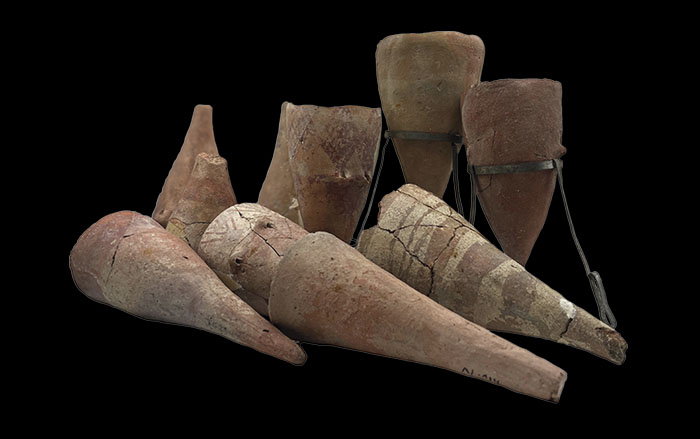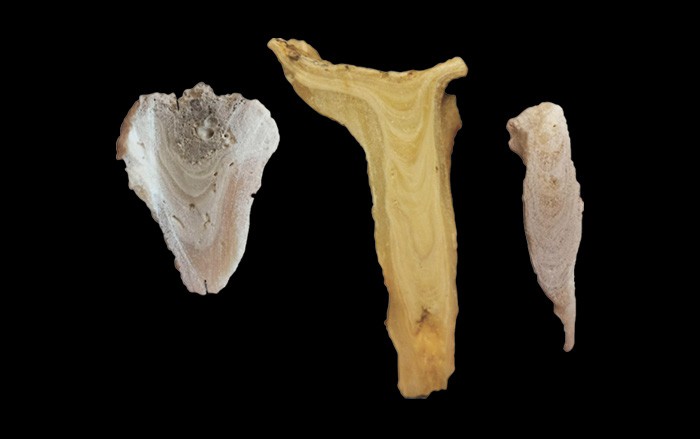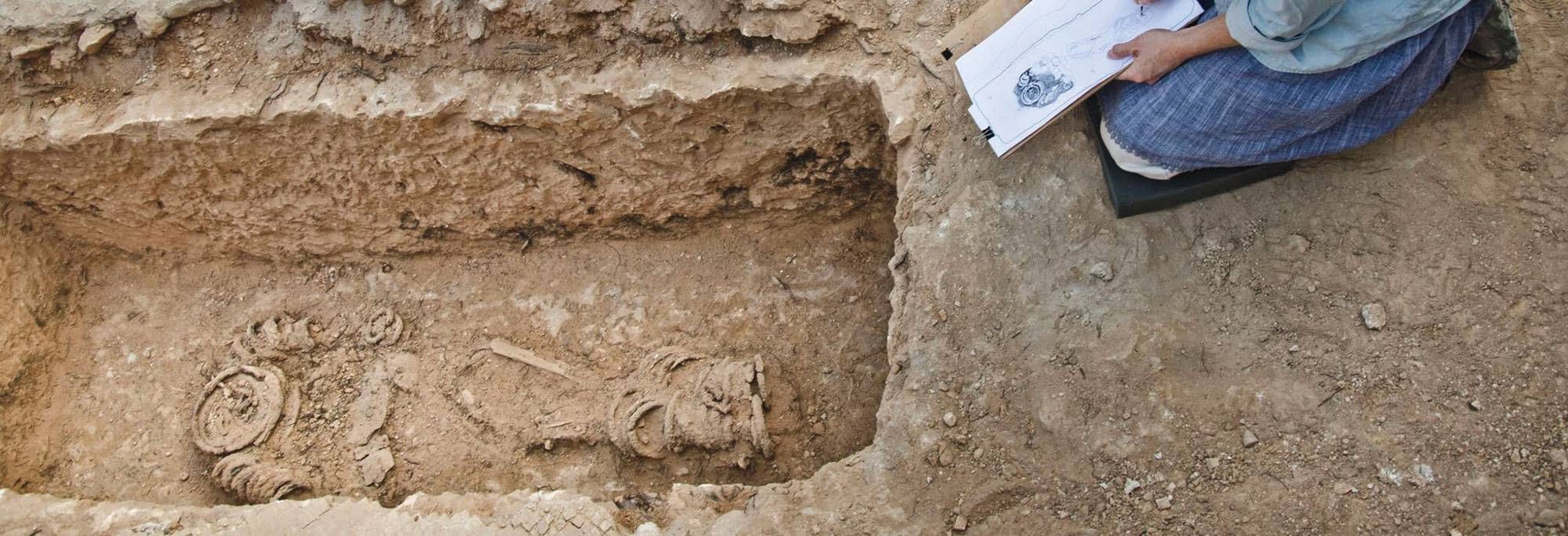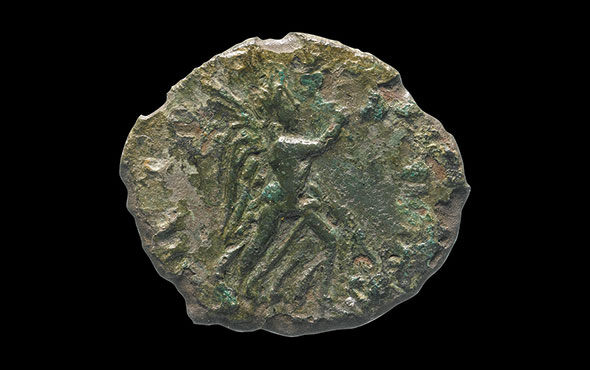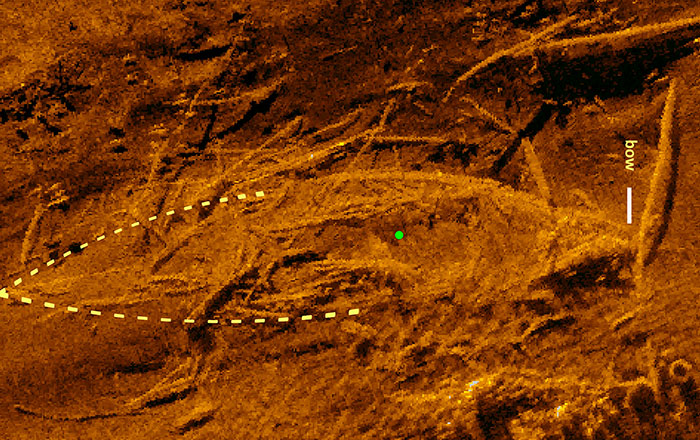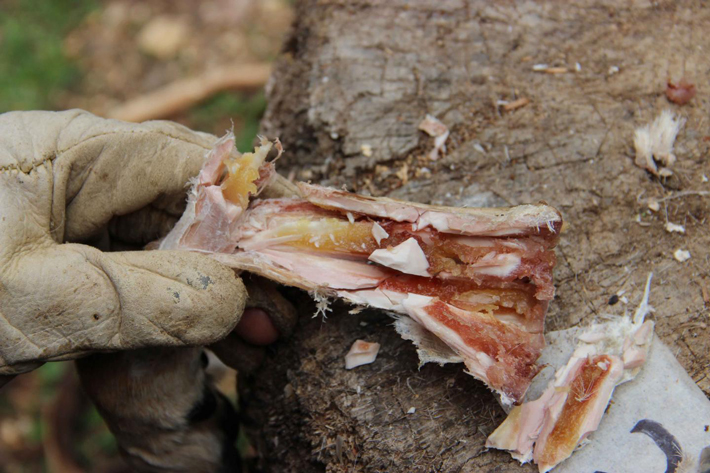
TEL AVIV, ISRAEL—The New York Times reports that hominins living in what is now Israel may have stored food as early as 400,000 years ago. Researchers led by Ran Barkai of Tel Aviv University analyzed marks on more than 80,000 bones from Qesem Cave and found heavy chop marks on the ends of some of fallow deer leg bones. Barkai said these bones carry no meat and little fat, and the skin is easy to remove when the bone is fresh. “We had a hypothesis that these unusual chop marks at the end of the meatless bones had to do with the removal of dry skin,” he said. To see if it was possible to store the bones in order to eat their nutritious marrow later, Barkai and his team members collected the leg bones of freshly killed deer and stored them in cave-like conditions for several weeks. At the end of each week, someone took a flint flake and a quartzite tool and attempted to break open a bone to remove its marrow, which was tested for its nutritional value. The experiments produced marks similar to those found on the Paleolithic deer bones, and the test results showed that after nine weeks, the bone marrow was still edible and nutritious. To read about early hominins' scavenging for meat, go to "Marrow of Humanity."


